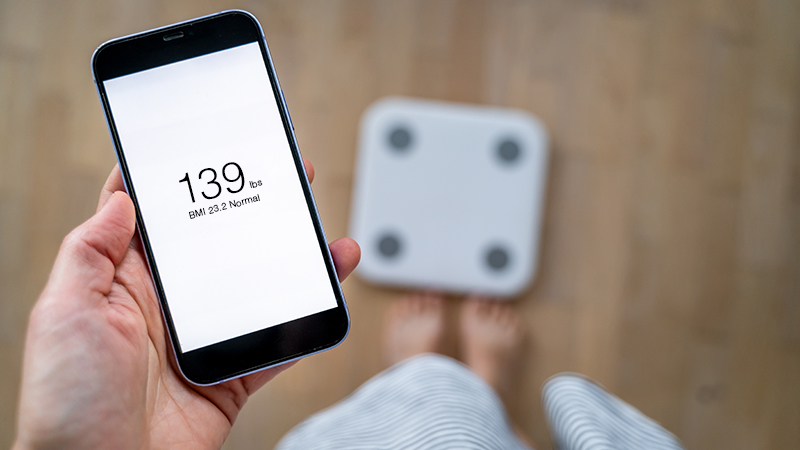Is GERD the Same Thing As Heartburn?
The Nitty Gritty on GERD
Updated November 2024
Gastroesophageal reflux disease (GERD) and heartburn are easy to confuse. Maybe you’ve used the terms interchangeably. However, heartburn is a symptom of GERD. And it is not the only symptom, nor is it a necessary one to receive a diagnosis. Dustin A. Carlson, MD, an esophageal gastroenterologist at Northwestern Medicine, sets the record straight on GERD and why it’s important to get to the bottom of this condition.
1. GERD Is Not Heartburn.
Not all heartburn is GERD and not all GERD causes heartburn.— Dustin A. Carlson, MD
Acid reflux occurs when the acid in your stomach comes up through the valve that is between your stomach and your esophagus. Because it can cause an uncomfortable burning sensation in your chest near your heart, many people refer to this sensation as “heartburn.” Sometimes, contents of the stomach, including partially digested food or acid, can travel all the way up into the mouth or upper portion of the esophagus. This is known as regurgitation.
If you experience heartburn or regurgitation more than twice a week, you may have GERD.
“Most people think if they have heartburn, they have GERD. Most of the time they’re probably right, but it may represent other medical problems too,” says Dr. Carlson. “Similarly, if you don’t have heartburn, but experience other symptoms, you can also have GERD.”
Symptoms of GERD include:
- Heartburn
- Regurgitation
- Chest pain
- Difficulty swallowing, or food becoming stuck in the chest
- Chronic or recurring cough
- Chronic or recurring sore throat
- Hoarseness
- Dental decay
See a full list of symptoms you should not ignore.
2. You Should Not Take Over-the-Counter Medications for GERD Without Consulting Your Clinician.
Several medications are readily available over the counter for temporary heartburn relief:
- Proton pump inhibitors (PPIs) reduce the stomach’s production of acid.
- H2 blockers also reduce the stomach’s production of acid.
- Antacids dilute the acid produced by the stomach.
These can help manage symptoms, but you should consult your clinician if you find yourself needing these medications more than two times a week.
Your physician will use a series of tests to determine if your symptoms are related to GERD. It is important to undergo testing to identify what is really going on, and if you have GERD or some other condition. Then, your care team can craft a treatment plan. You should not be on medication long term unmonitored.
Additionally, your clinician may be able to recommend a specific approach to alleviate symptoms. For example, taking an antacid and an H2 blocker may help you by first neutralizing the acid in your stomach and then limiting additional acid production. These medications can also interact with other medications, so it’s important to share all medications you’re taking (over-the-counter and prescribed) with your care team.
3. Medications Can't Cure GERD.
Non-surgical treatment options for GERD can help manage symptoms by reducing or stopping acid production in your stomach. However, for those with GERD, the actual root issue may lay in the anatomy or mechanics of your body. “Reflux can still occur in those taking medication for GERD, but the reflux contents are less irritating to the walls of the esophagus,” says Dr. Carlson.
If left untreated, GERD could put you at risk for other, more serious health issues. Persistent reflux can cause inflammation in your esophagus and this can be associated with Barrett’s esophagus, which has a small risk of progressing to esophageal cancer.
Additionally, scarring related to inflammation and ulceration from GERD can narrow your esophagus, which can make it harder to eat. Medication helps, but some people do not respond to medication and may need a surgical or endoscopic fix. In those cases, Dr. Carlson recommends getting specialized testing to determine if GERD is the cause and why it is not responding to medications.
4. There Are Several Effective Surgical Treatments for GERD.
For many years, the mainstay of surgical treatment was a laparoscopic antireflux surgery, known as fundoplication. This procedure uses part of your stomach to reinforce the valve at the bottom of your esophagus. It is often very effective and can be done using different approaches focused on how tight the wrap/valve is made. The main issues with fundoplication tend to be some minor trouble swallowing and bloating. Most people can eat normally after fundoplication without heartburn or regurgitation.
The LINX procedure is a minimally invasive procedure that uses a string of magnetic beads to encircle the lower esophagus. The magnets reinforce the valve, preventing acid from going up into the esophagus.
Endoscopic procedures that allow for the creation of an endoscopic fundoplication, called transoral incisionless fundoplication, are also a less invasive approach compared to classic fundoplication.
No matter which approach to GERD management you are considering, talk to your care team.
“Treatment decisions are made based on each person’s needs,” says Dr. Carlson. He stresses the importance of seeing a specialist who is well versed on all of the options available to determine what is best for your unique needs.
5. Stress Does Not Cause Reflux.
But it can induce symptoms of reflux, such as heartburn and chest pain. These symptoms may happen without actual reflux of stomach acid into the esophagus or throat.
Treatments that can help address these non-reflux causes include:
- Breathing exercises
- Behavioral techniques like cognitive behavioral therapy
- Hypnosis
Stress can make acid reflux symptoms worse, so managing your stress can help with heartburn and chest pain, regardless of their connection to GERD.
Learn more about the mind-gut connection.






